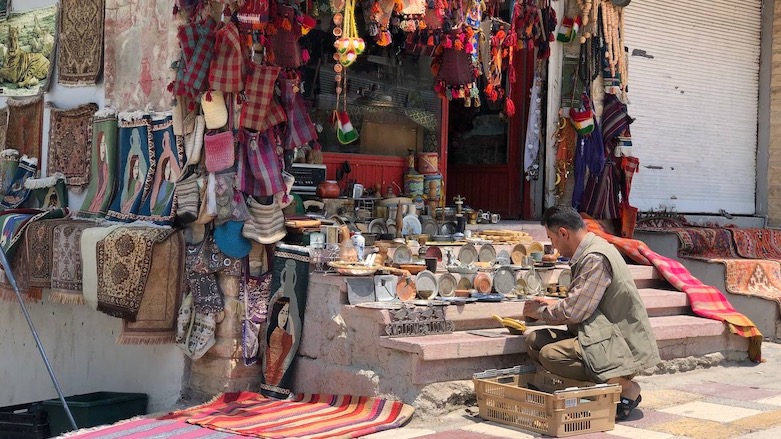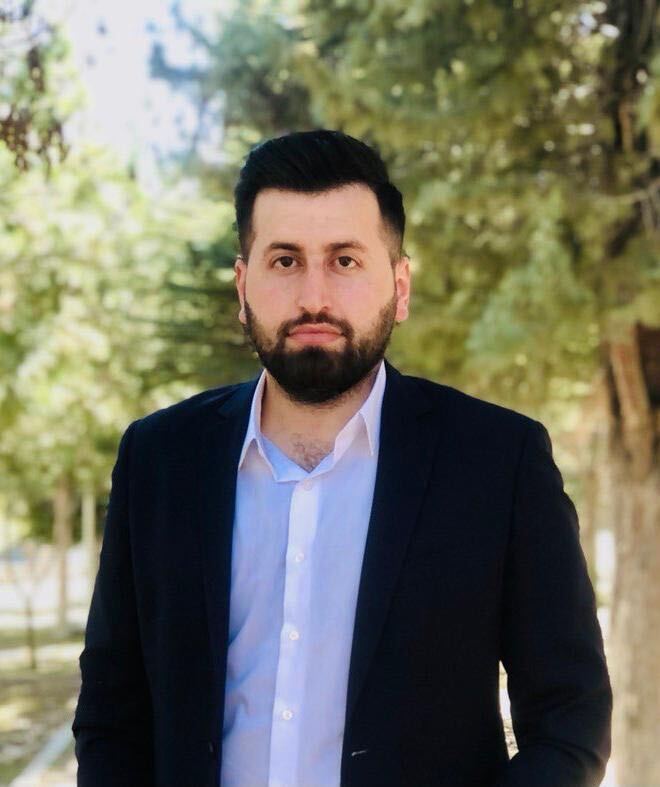In an unlikely corner of the Duhok bazaar, treasures of Kurdish culture are preserved

Duhok bazaar is located in the heart of the city, and has always been a lively place where people can find most anything they need. Even as Duhok has developed and new malls and markets pop up, the bazaar remains a crowded place enjoyed by all classes of society.
In an old corner of the bazaar you can find a particular souvenir shop. Although it is not spacious you can’t miss it, as this place stands out among its neighbors.
Owner Farsat Hassan Muhammad is only 45 years old but has been in the business for four decades, first attending the shop with his father as child.
For Farsat, the shop is primarily a hobby and a passion where he can showcase and safeguard Duhok’s cultural heritage as it is not particularly profitable and customers are limited.
But he repeated with enthusiasm that folklore is the identity of a nation, and Kurdish folklore and heritage could not be left to disappear.

Not Everything is for Sale
Farsat’s shop showcases around a thousand traditional tools and other pieces made by the people of Duhok, including Yezidis, Muslims, and Christians, as well as items from the Kurdish parts of Turkey, Iran, and Syria. But one unique item not available to purchase is a traditional Kurdish carpet.
The carpet is around 90 years old, he told Kurdistan 24, and was woven by an older generation of Kurdish women who used natural colors extracted from roots and leaves.
“I have exhibited this carpet in more than 20 festivals and exhibitions in Kurdistan, Iraq, and abroad but I still keep it and for me it’s priceless,” Farsat said.
The most expensive thing he has ever sold was another Kurdish rug, hand-made in a textile factory in Duhok, for $900.

Farsat estimated that only 20 percent of his customers are from Duhok and another 25 percent from the Kurdistan Region. Instead, most purchases are made by tourists from the central and southern parts of Iraq as well as foreigners.
Like countless other sectors, the shop was hit hard by the COVID-19 pandemic and subsequent economic downturn, and it has not yet fully recovered, he said.
Beyond a Personal Passion
Farsat’s efforts have not been restricted to his shop. He has a long history of representing Kurdish cultural heritage in the best ways he can think of, from local and international festivals to consulting with TV channels for heritage programs.
“I have had many experiences doing this job and tried my best to show Kurdish folklore,” he said. “One of the hardest experiences was when I participated in a fair in Istanbul and had to deal with some hateful comments for using the Kurdistan name and flag.”

During the 1980s, despite pressure from Saddam Hussein’s government, Farsat took a personal risk in providing Kurdish Peshmerga fighters with non-lethal equipment like bags and water canteens, as well as clothing to make their journey through thorny areas less difficult.
Cultural Heritage and the New Generation
The picturesque view inside Farsat’s shop has attracted younger people who use it as a background for photographs, including young couples who pose there on their best days.

The trader said he received a lot of gratitude for his genuine efforts to showcase Kurdish history. He has become known as a “keleporparez,” a keeper of cultural heritage.
Farsat said he hoped for a bigger space to show Duhok’s visitors a slice of Kurdistan’s great culture, and to share it with the new generation to keep in touch with their history.
